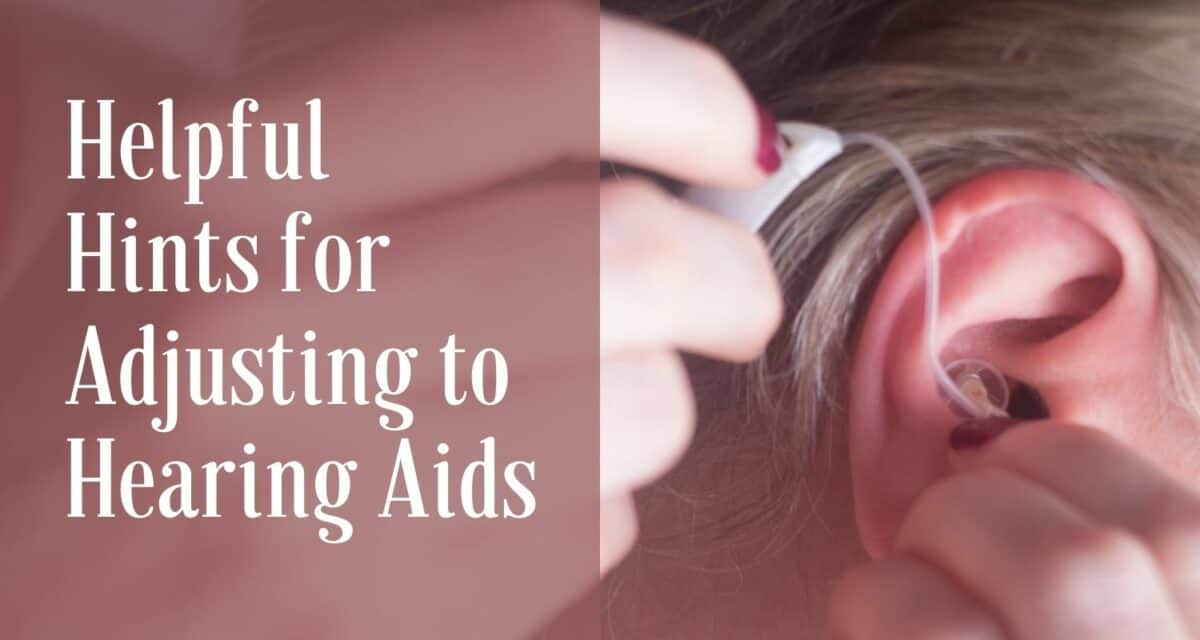It takes people on average 7 to 10 years from the time they first suspect they have a hearing loss to finally leap to seek treatment. If this is you, and you’ve taken the step towards trying hearing aids, then let’s start with congratulations! One of the hardest steps towards seeking treatment for hearing loss is admitting you have a problem.
However, 7 to 10 years is a long time, and getting used to hearing aids isn’t going to happen overnight. So many people who could benefit from hearing aids often give up before they have a chance to acclimate and truly experience the many benefits of hearing loss, such as ease in conversation, higher self-esteem, a greater sense of independence, and a more active lifestyle. Hearing aids take time to get used to, but the key to getting there is commitment. Here are a few tips to help you get used to your hearing aids so they can help you unlock fun and adventure in your life.
Getting Used to “New” Sounds
If it’s been a while since you’ve had normal hearing, then wearing hearing aids for the first time may seem jarring. Don’t hesitate to reach out if the sounds seem disturbing. Hearing aids are designed to amplify only the sounds you struggle with based on your hearing exam. Programing takes finesse and it’s normal to have adjusted the program a few times. We can talk you through any concerns you may be having and can adjust as needed along the way. Even the sound of your voice may be alarming after years with muffled hearing. Chewing and swallowing may be especially noticeable. While at first, this may be distracting over time your brain will normalize these sounds. It is all part of the journey towards clearer hearing.
Start by Wearing Them Around the House
Eventually, you are going to want to wear your hearing aids everywhere you go from the moment you wake up till the time you go to sleep. However, at first, when you are getting used to them, try only wearing them in a familiar environment such as your own home. You can get used to the sounds around the house with your closest people. Let your family and friends know you are just getting used to them so they can support you along the way. Supporting you in your journey towards hearing can include everyone.
Give Yourself Hearing Challenges
It takes a while for your brain to get used to hearing with hearing aids. Try reading out loud to yourself at first, to get used to your voice. As this becomes more normalized, try focusing on the sounds around the house and trying to figure out the location. This can help your brain isolate sounds and make you more confident out in the world, and more aware of your surroundings.
Take Breaks
Eventually, for best results, you’ll want to wear your hearing aids at all waking hours, aside from swimming and bathing. However, for the first week, it is okay to go slow. Take breaks. Start with just an hour or two the first couple of days and slowly increase. By two weeks most people acclimate to hearing aids and wonder how they ever operated without them.
Getting Used to Background Noise
One of the biggest challenges to getting used to hearing aids is letting your brain relearn to prioritize sounds. At first, with new hearing aids, the amplification can be overwhelming as you hear birds chirping, people talking, air conditioners blowing, and street traffic outside, all at once. This can feel like an overload for your brain, but over time you’ll learn how to ignore background noise so you can focus on the sounds you want and need to hear.
Improved Access to Your World
After a couple of weeks, you and your brain will have acclimated to new hearing aids. You’ll find that it will be pleasant to converse with others again as you’ll be able to follow what they say, rather than being confused. All this new stimulation is important for your brain. The alternative – putting off treatment, can cause unused parts of your brain to atrophy over time, increasing the risk for cognitive decline and dementia. Don’t let it get to that point. If you need more tips on getting used to hearing aids or want to schedule a hearing exam, don’t delay. Set up an appointment with us today!


